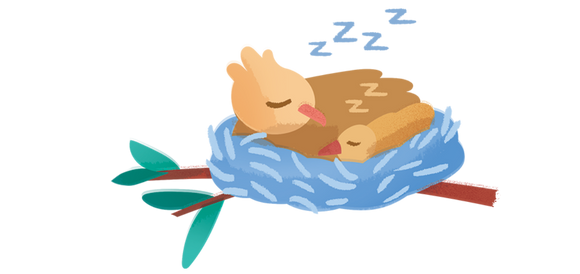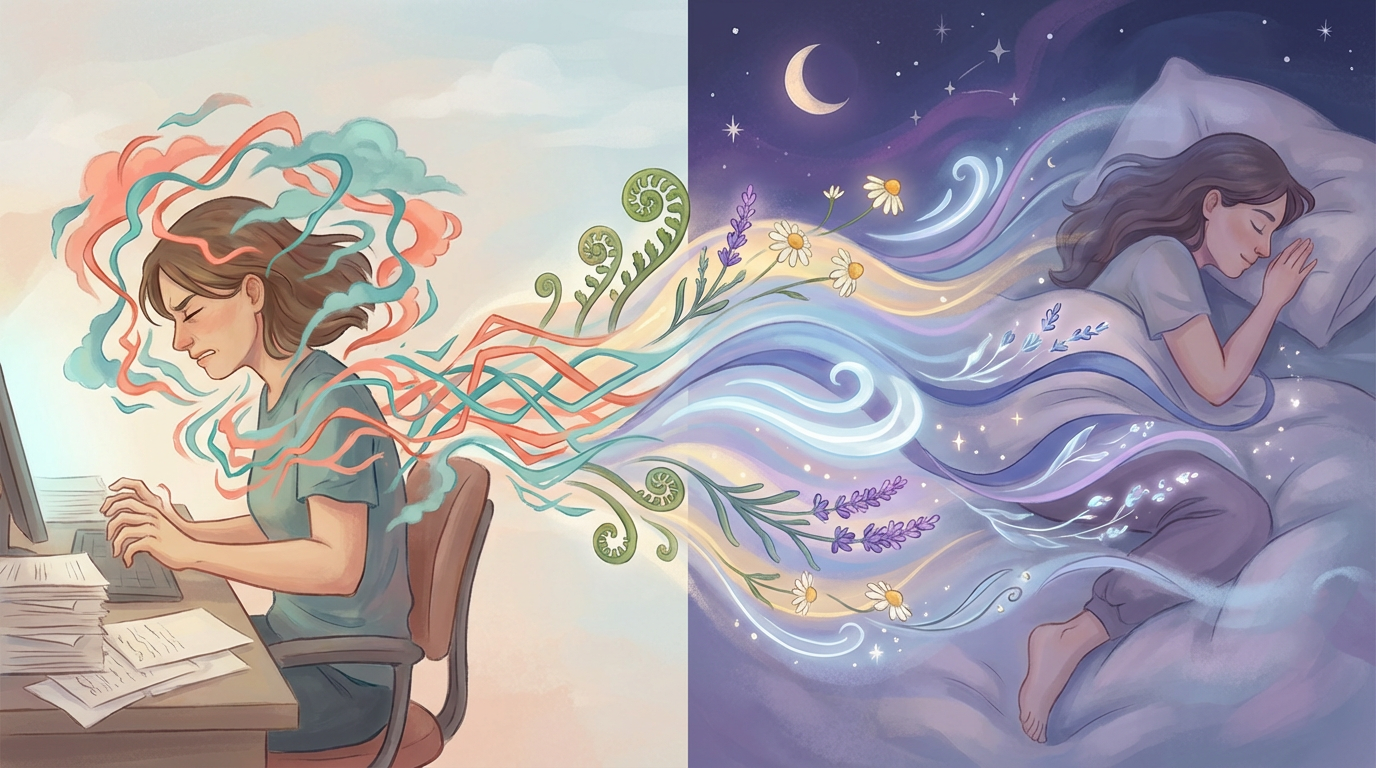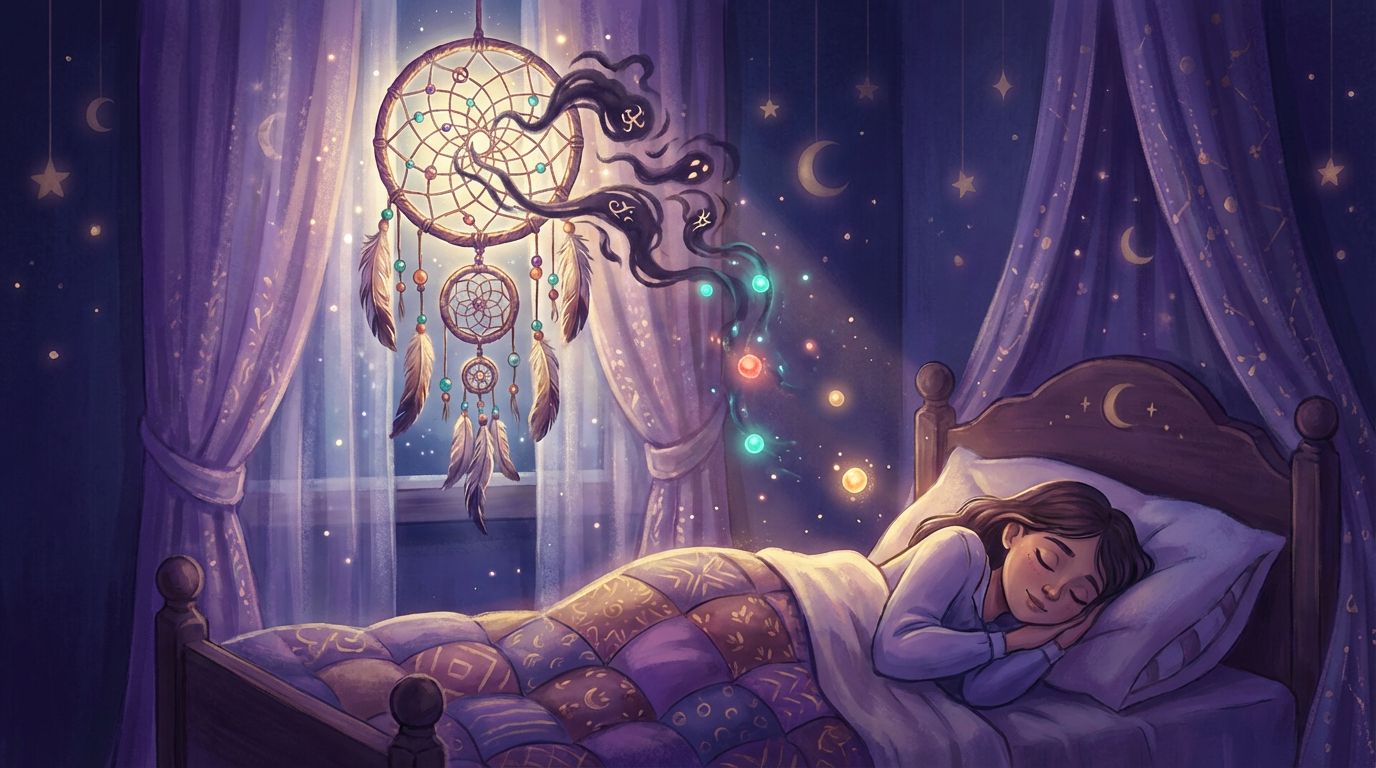
Nightmares in Children
It is estimated that almost 50% of children will experience a nightmare at some point in their lives. For most people, nightmares are nothing more than an annoyance, and it's nothing to be worried about.
But for some children, nightmares can be terrifying and disruptive to their lives. Sleep is essential for overall health and well-being, but for children, it is essential, and frequent nightmares shouldn't disrupt it.
Parents can help their children deal with these bad dreams with some understanding and preparation. If your child is experiencing frequent or severe nightmares, getting help is important. In this post, we will explore the causes and effects of nightmares in children and ways to help them overcome this fear.
What are Nightmares in Children
Nightmares in children are scary or frightening dreams that usually wake them up. They can involve fear, anxiety, and other emotions like anger, sadness, embarrassment, or disgust.
Children often have nightmares about monsters, ghosts, witches, dogs, snakes, or (unhappy) events such as school tests. Many children have a nightmare once in a while, but some have them often. Occasional nightmares are more common in children aged 3-6 years old.
For most children, nightmares are a normal part of growing up and do not need treatment. If your child has nightmares often and is upsetting or affecting their sleep or daily life, you may wish to talk to your GP or a child psychologist.
You can do some simple things to help your child if they have nightmares, such as establishing a regular bedtime routine, including relaxation techniques, avoiding watching television or playing video games before bed, and helping them to understand their dreams by talking about them during the day.
What Causes Nightmares in Children
Nightmares can be disturbing for children and may cause them to wake up feeling scared or panicked. It's not clear what causes nightmares, but they seem more common when kids are overtired or experiencing stress. Children who have gone through traumatic events may have frequent nightmares.
Some children have them because they are afraid of the dark, of ghosts or monsters. Others may experience them after hearing a scary story, seeing scary movies or TV shows, or reading scary books. Still, others may have nightmares because they are worried about something that is going on in their lives, such as a divorce in the family, a move to a new house, or starting at a new school.
A child's nightmares may stem from stress, anxiety, or depression. In some cases, certain medications can also cause nightmares or disturbing dreams
Most children outgrow having nightmares by the time they reach adolescence, but some continue to have them into adulthood. If you are an adult with recurrent nightmares, you should talk to your doctor or a mental health professional to see if there might be an underlying cause that needs to be addressed.
If your child is having frequent nightmares, it's important to talk to their doctor to rule out any underlying medical causes and to help them find ways to cope with their dreams. Treatment for nightmares usually involves therapy, which can help you deal with the emotions that are causing the nightmares.
What are the Effects of Nightmares on Children
Nightmares can be upsetting for children and may cause them to feel helpless or anxious. Nightmares may also cause insomnia symptoms, such as difficulty falling asleep or fear of sleeping, leading to further anxiety.
Children who have nightmares may sometimes act out their dreams during the day. This can be disruptive to their daily routine and may cause them to feel even more anxious. If your child has frequent nightmares, it is important to talk to a doctor or psychologist to help them understand and cope with their dreams. Left untreated, nightmares can lead to serious emotional problems.


At What Stage of Sleep Does Nightmare Occur in Children
Children's brains are still developing and are more prone to rapid eye movement (REM) sleep, which is when nightmares occur. Nightmares are caused by the brain processing vivid images, which can seem real. Nightmares happen during the night's second half when REM periods are longer. Most children outgrow having nightmares by the time they reach adolescence, but some continue to have them into adulthood.
When your child wakes up from a nightmare at the REM stage, the images are still fresh and can seem real. However, with time and explanation, children will realize it was a dream. Although nightmares can be upsetting, they are a normal part of childhood and do not cause harm.
Dealing with Nightmares in Children
Children often wake up after a nightmare crying and upset. It can be hard for young children to understand the difference between dreams and reality. But as they get older, they'll realize that a dream is just a dream. Even so, they'll still need your comfort after having a bad dream.'
Here are things you can do to reduce the risk of your children having nightmares.
- Ensure they get enough sleep - A tired child is likelier to have nightmares. Help your child practice sleep hygiene by having a regular bedtime routine and sticking to it as much as possible.
- Encourage them to talk about their day - If your children are worried or anxious about something, it may help to talk about it during the day. Talking about a traumatic event can stop it from coming up in their dream. Be patient and listen without downplaying their feelings.
- Limit screen time before bed - Too much screen time before bed can make it harder for children to sleep. Watching scary shows before bed with themes like a natural disaster, horror, and being of questionable humanity increase the risk of nightmares. These films make them feel scared because it makes kids explore their vivid imaginations.
- Read stories before bed - Reading stories with your children can help them wind down and make them happy before sleep. It can also encourage them to talk about their fears and worries.
- Comfort and reassure your child - If your child has a nightmare, try to help them cope by comforting and reassuring them. Explain that it was just a dream and that they're safe now. Stay with them until they fall asleep and ensure their favorite hero or stuffed animal is close by. Toddler nightmares are often a response to something stressful during the day, so if your child is going through something difficult, like starting school, childcare, or moving house, be extra understanding. Your love is the sleep medicine and easy solution for toddlers and preschoolers at this point.
- Work together to overcome nightmares- You can work together to find creative ways to overcome nightmares. One way to do this is to read stories together about characters who overcome their nighttime fears. This can help your child see that overcoming their nightmares is possible. Another idea is to encourage your child to draw pictures of their nightmares or have a magic wand for disappearing in a frequent nightmare involving an alien. This can be a very cathartic activity for them. Once they have drawn the picture, help them to tear it up and throw it away. This will symbolize their willingness to let go of their nightmares. Whatever creative solution you think may work is worth trying. With a little effort, you should be able to help your child outgrow their nightmares.
How to Deal with Nighttime Fears in Children
Adults often misunderstand children's fears. What may seem like a silly worry can be a genuine and terrifying concern for a child. It is important to remember that children possess an active imagination and often have difficulty distinguishing between reality and fantasy. As a result, taking your child's fears seriously and offering reassurance as needed is essential.
If your child is having difficulty sleeping due to fears or anxiety, you can do a few things to help ease their mind and encourage a restful night's sleep.
First, avoid talking about their fears or making jokes about them. This can unintentionally make the fear seem more real or reinforces the idea that there is something to be afraid of. Instead, calmly reassure your child that they are safe and there is nothing to be afraid of. Help your child to understand that their fears are normal and that there is nothing to be ashamed of.
Additionally, try to avoid telling your child that their bedtime fears are irrational or foolish. Instead, validate their feelings and offer reassurance that you will always be there to protect them.
You can also offer to stay in their room for a short time until they feel sleepy and ensure the night light is on. Also, help them trust their bed. If their fear is specifically of the dark, you can leave a nightlight on or crack the door to their room open, so they feel less alone and enclosed in the darkness.
Finally, always be available to talk with your child if they need more reassurance or have questions. Answering their questions honestly and patiently will help them feel more comfortable and ease their fears. With some time and effort, your child should be able to overcome their bedtime fears and start sleeping soundly through the night again.


What About Sleep Terrors?
Sleep terrors, also known as night terrors or scary dreams, are sleep disorders that typically affect children. Although they can be alarming for parents, sleep terrors are usually not harmful and do not indicate an underlying medical condition.
During a night terror, a child may suddenly sit up in bed and scream or cry. They may also thrash around or appear panicked and disoriented. Sleep terrors usually occur during the first few hours of sleep and last for several minutes.
Children usually do not remember having a sleep terror the next morning. If your child has a sleep terror, staying calm and trying to comfort them is important. Do not try to wake or restrain them, as this can increase their anxiety. If sleep terrors are frequent or severe, you should seek professional advice.
Treatment options include ensuring your child is well-rested and creating a relaxing bedtime routine. In most cases, sleep terrors will resolve on their own as your child gets older.
Bottom Line
Nightmares and night terrors are natural and common occurrences in childhood. Up to 85% of children have at least one nightmare per year, and almost half will experience nightmares once a week or more.
Nightmares usually occur during the second sleep stage, typically when deep sleep occurs. This means that most nightmares are over within 10 minutes. Nightmares can be caused by many different things, such as stress, anxiety, fear, excitement, or even watching horror movies before bedtime.
There is no one right way to deal with nightmares; some parents choose to wake their children up and comfort them, while others simply let the child work through the dream on their own until they fall asleep. If your child experiences frequent or severe nightmares, it is important to talk to your pediatrician about possible causes and solutions.






















